
One of the ever-changing communications phenomena that most fascinates me is the relatively new practice of people forwarding newspaper articles to one another. Or even blog posts — some of mine have ended up in some awfully odd places. Scads of people who would never dream of clipping a column out of a physical newspaper blithely forward other people’s writing on subjects that interest them all over the place, often with minimal comment.
Basically, they’re saying: I saw this and thought it would interest you, but I don’t really have anything to add to the discussion.
Okay, so maybe that’s a trifle harsh: unlike, say, aspiring writers, many people prefer to be content consumers, rather than producers. The pervasiveness of the forwarding-without-substantive comment practice is largely a side effect of so much information being available online these days. But I must confess, I don’t think it’s really a substitute for discussion, conversation, or even a friendly I was thinking of you.
In particular, I’m constantly bemused at how often I’m forwarded pieces that simply confirm things that the sender is already aware that I have known for years. How do I know that they’re aware of it? Because when I’m interested in something, I like to have discussions about it.
Case in point: last week, no fewer than fifteen people — delightful, well-meaning, quite intelligent people, fully capable of holding up their respective ends of conversations — forwarded me the link to a recent Wall Street Journal article revealing the shocking fact that major publishers in the US no longer read unsolicited submissions from unagented writers. The slush pile, the article breathlessly informed readers, is all but dead.
Which will not come as a surprise, I suspect, to any aspiring writer who has tried to get a book published within the last 15 years. The agented-only submissions policy has been in place at the majors for an awfully long time now.
As, indeed, I would hope that anyone who reads this blog on a regular basis, or even has been following this month’s posts on how the publishing industry does and doesn’t work, was already aware. In case anyone still is not: under no circumstances should a writer query or submit directly to an editor at a major (or even mid-sized US publishing house, unless the editor has specifically requested it. It’s just a waste of a writer’s time and resources.
There, now: none of you fainted, did you? Were any eyebrows even raised?
But then, I am perpetually astonished at the already pretty well-established phenomena that are evidently supposed to flabbergast otherwise reasonable adults. That TV characters who have been flirting for seven consecutive seasons suddenly end up romantically entangled during episodes aired during sweeps week, for instance: um, who precisely is not going to have seen that coming? Or that any given major political initiative is greeted by anything but the unanimous approval of any given legislative body: as nearly as I can tell from the news every night, we’re all supposed to be floored by the fact that politicians disagree with one another from time to time, even when those splits run along precisely the party lines that characterized the last 17 major disagreements. Or that anyone’s cockles wouldn’t be warmed by the magic of Christmas.
Frankly, I like to think that most people are a trifle less credulous than that — and more inclined to learn from experience. To paraphrase Abraham Lincoln, I don’t think too much of people who are not wiser today than they were yesterday.
Which is one aspect of how the publishing industry treats writers that I really like: it assumes not only that anyone who can write well enough to deserve to be published is an intelligent human being, but also that a good writer can and will learn the ropes of the business side of publishing That’s not an insignificant compliment, in this era where even news shows operate on the assumption that the average adult has the attention span of a three-year-old — and one who has been stuffing candy into his eager mouth for the last two hours at that. Actually, I find agents’ and editors’ presumption of authorial intelligence rather refreshing.
If not always completely justified. Aspiring writers often expend a great many tears, trying to capture the attention of an agent or editor when they do not know the rules for flagging ‘em down. Or that there are rules at all.
Hey, did you hear that new writers never get discovered from the slush pile? Film at 11.
Which may, I suppose, be the point of forwarding some information around. Since the pros expect writers to do their own research before trying to get their books published, those brand-new to the biz are often stunned that nobody in the industry just tells them what to do. From a first-time querier’s perspective, it can seem downright counterproductive that agents just expect her to know what a query letter should look like, what information it should contain, and that it shouldn’t just read like a back jacket blurb for the book.
Heck, how is someone who has never met an agented author in person to know not just to pick up the phone and call the agent in question? Magic? Osmosis?
Similarly, agents, editors, and contest judges presume that anyone genuinely serious about her writing will have taken the time to learn how professional writers format their manuscripts — an interesting presumption, given that many, if not most, aspiring writers are not aware that professional manuscripts are not supposed to resemble published books. (To those of you who just gasped: don’t worry; I shall be going over the differences again as soon as I wrap up my current series on how books get published.)
Correct me if I’m wrong, but that’s not information that the average writer is born knowing — which is a real shame, since professionally-formatted manuscripts tend to be taken far more seriously at submission time than those that are not.
Why? Well, partially because of that flattering supposition I mentioned above: because people who read manuscripts for a living tend to assume that since good writers are intelligent people, the common conclusion is that the only reason that a manuscript would not be formatted properly is that the submitter did not bother to do his homework.
In other words, from their perspective, a query or submission that does not conform to their expectations of what is publishable (in terms of writing) or marketable (in terms of content or authorial authority) is a sign that the writer just isn’t ready yet to play in the big leagues. That doesn’t necessarily mean that they believe that writer will never produce professional-level work; indeed, folks in the industry tend to assume (and even say at conferences) that they’re confident that if a truly talented writer gets rejected, she will take it as a sign that she needs to improve her presentation.
Since the information on how to do that is available — although nowhere near as readily or conveniently as most agents who say this sort of thing seem to think, despite the pervasiveness of the forwarding culture — why wouldn’t someone with a genuine gift invest the time and effort in learning to do it right?
In my experience as a freelance editor, writing teacher, and conference presenter, there’s a very straightforward answer to that: because the average querier or submitter, gifted or otherwise, doesn’t have a clear idea of what he’s doing wrong. And since most rejection letters these days contain absolutely no clue as to what caused the agent (or, more commonly, the agent’s screener) to shove the submission back into the SASE — or don’t respond at all if the answer is no — I don’t find it all that surprising that the aspiring writer’s learning curve isn’t always particularly steep.
You may forward the link to my saying so. Just don’t quote me without giving me credit, okay?
All of this is why I am bringing up the expectation of intelligent research toward the end of this series on how writers bring their books to publication. Indeed, it’s a large part of the reason that I write this blog: from an outside perspective, it’s just too easy to interpret the sometimes esoteric and confusing rules of querying, pitching, and submission as essentially hostile to aspiring writers.
That’s not really the case. While many of the querying and submission restrictions have indeed been established, as we have discussed, in order to narrow the field of candidates for the very, very few new client slots available at most agencies, the intent behind that weeding-down effort is not to discourage talented-but-inexperienced writers from trying to get their work published. The underlying belief is that an intelligent person’s response to rejection will not be to give up, but to analyze what went wrong, do some research about what can go right, and try, try again.
Yes, what you just thought so loudly is quite correct: the fine folks who toil in agencies and publishing houses don’t expect the writers they reject to disappear permanently, at least not the ones with genuine talent; they believe that the gifted ones will return, this time better equipped for life as a professional writer. To cite the old publishing industry truism, good writing will always find a home.
What the agents and editors who spout this aphorism seldom think to add is: but not necessarily right away. Like learning any other set of job skills, becoming a professional writer can take some time.
Which means, from the business side of the industry’s perspective, writers who give up after just a few rejections — which is the norm, incidentally, not the exception — are those who aren’t seriously interested in making the rather broad leap between a talented person who likes to write and a professional writer in it for the long haul. Trust me, they don’t waste too many tears over the loss of the former.
I don’t see it that way, personally: given how many writers I meet in my classes, at conferences, and through this blog, I see the crushed dreams. But that doesn’t mean that I don’t think that most talented aspiring writers take individual rejections from agents far, far too seriously.
That’s why, in case you were wondering, I didn’t move on to my promised topic du jour, what happens after an agent agrees to represent a manuscript. There will be time enough for that happy contingency tomorrow.
Today, I want to concentrate on the importance of keeping faith with your own work. These days, it seems as though every other aspiring writer I meet has either:
(a) had sent out a single query, got rejected, and never tried again,
(b) had a few queries rejected two years ago, and has been feverishly revising the manuscript ever since, despite the fact that no agent had yet seen it,
(c) had pitched successfully at a conference, but convinced herself that the only reason four agents asked to see her first chapter was because those agents were just saying yes to everybody,
(d) had received a positive response to a query or pitch, then talked himself out of sending the requested materials at all, because his work isn’t good enough,
(e) had sent out the requested pages, but in order to save herself from disappointment, decided in advance that none of the replies will be positive,
(f) had received the first manuscript rejection — and expanded it mentally into a resounding NO! from everyone in the industry, and/or
(g) concluded from conference chatter that no one in the industry is interested in any book that isn’t an obvious bestseller.
In short, each of these writers had decided that his or her fears about what happened were true, rather than doing the research to find out whether the response that fear and hurt dictated was in fact the most reasonable one.
How might one go about figuring out whether a fear is reasonable? Let me address each of above quickly, to save you some late-night agonizing time:
(a) A single query is not — and cannot — be indicative of how every agent on earth will respond.
A better response: why not try again?(b) Until agents have actually seen the manuscript, there’s no way a writer can know how they will respond to it.
A better response: work on improving the query.(c) No, the agents and editors WEREN’T asking everyone to send chapters — pitching doesn’t work that way.
A better response: assume that you did something right and send out the requested materials.(d) How do you know for sure until you send it out?
A better response: learn how to present your work professionally, then submit it.(e) In my experience, foretelling doom does not soften future misfortune, if it comes — it only serves to stultify present hope.
A better response: hedge your bets by continuing to query other agents while waiting to hear back from the first round.(f) ANY individual agent or editor’s opinion of a book is just that, an opinion. It’s not the considered response of everyone affiliated with the publishing industry forever and ever, amen.
A better response: see (a)(g) Contrary to popular opinion, the publishing industry makes MOST of its money on books that are neither bestsellers nor small-run books. Most of the time, the mid-list titles are paying the agency’s mortgage.
A better response: take the time to learn how the industry works, rather than killing your chances entirely by not continuing to try.
I don’t mean to imply that bouncing back from rejection is easy, or that landing an agent is a snap. The road from first idea to publication is long and bumpy, and seems to get bumpier all the time.
As Maya Angelou tells us, “There is no greater agony than bearing an untold story inside of you.”
Yes, it’s emotionally hard work to prep your pages to head out the door to agents and editors; yes, it is hard to wait for replies to your submissions. To give you a foretaste of what’s down the road if you’re successful, it’s also psychically difficult to watch the weeks tick by between when you sign with an agent and when that sterling soul decides that, in her professional opinion, the time is ripe for her to submit your book to editors. And then it’s rough to wait until those editors get around to reading it, just as it is agonizing to hang around, feigning patience, between the time a publisher acquires your book and it appears on the shelves.
I’m not going to lie to you: it’s all incredibly wearing on the nerves. Again, though: is film at 11 really necessary?
But if you are thinking about throwing in the towel on your book before you have given the querying and submission processes a thorough test, I’m just not the right person to look to for validation of that decision. Sorry. I’ll give you practical advice on how to query; I’ll hand you tips on how to improve your submission’s chances; I’ll share pointers on the fine art of revision; I’ll answer your questions along the way.
I will cheer from the sidelines until I’m blue in the face for your efforts as a writer — as long as you keep trying.
Why? I can only refer you to one of the few industry truisms that is actually true 100% of the time: the only book that has ABSOLUTELY no chance of being published is the one that stays hidden in the bottom drawer of the author’s filing cabinet.
Keep pushing forward; keep sending your work out. Because while it’s time-consuming, expensive, and emotionally wearing, it’s also literally the only way that your book — or any book — comes to publication.
Long-time readers of this blog will groan with recognition, but once again, I feel compelled to remind you that five of the best-selling books of the 20th century were rejected by more than a dozen publishers before they were picked up. Everybody count down with me now:
Dr. Seuss, AND TO THINK THAT I SAW IT ON MULBERRY STREET (rejected by 23 publishers)
Richard Hooker, M*A*S*H (21)
Thor Heyerdahl, KON-TIKI (20)
Richard Bach, JONATHAN LIVINGSTON SEAGULL (18)
Patrick Dennis, AUNTIE MAME (17)
And all of those books got published back in the days when new writers actually did get discovered in the slush pile. Yet the lesson to derive from these facts, I think, is not that a changing industry should make aspiring writers fling up their hands at how much more difficult it is to get into print now, but that it’s imperative to keep moving forward.
Please, please, PLEASE don’t dismiss your book too soon, on the basis of some preconceived notion of what will and will not sell — even if that preconceived notion fell from the ostensibly learned lips of the agent of your dreams.
Concentrate on what you CAN control, not what you can’t. In order to do that effectively, you’re going to need to learn about how the process actually works. The good news is that the writer does have practically absolute control over the technical and cosmetic aspects of the submission.
Yes, yes, I know — for most of us, getting our thoughts, stories, and worldviews out there is the primary goal of writing a book, so concentrating on the details seems comparatively boring. Most writers want to move directly to unfettered self-expression — and then are surprised and frustrated when the resulting book has difficulty finding an agent, getting published, or winning contests.
But this is a bad idea, both professionally and emotionally. Concentrating almost exclusively on the self-expressive capacity of the book, we tend to read rejection as personal, rather than as what it is: an industry insider’s professional assessment of whether she can sell your work within her preexisting sales network.
To return to what I was saying last week: ask anyone in the biz, and he will tell you that 99% of rejections are technically-based. The rejection usually isn’t of the submitter’s style or worldview, for the simple reason that those are not considerations unless the basic signs of good writing — in the sense of professional writing — are in the submission.
That can be a very empowering realization. As can coming to terms with the fact that while people may be born with writing talent, the ability to present writing professionally is a learned skill.
Once a writer grasps the difference between technically good writing and stylistic good writing, as well as the distinction between a well-written manuscript and a professionally-formatted one, rejections become less a personal insult than a signal that there may be technical problems with how she is presenting her writing. The question turns from, “Why do they hate me?” to “What can I do to make this submission/query read better?”
Yes, yes, I know: emotionally speaking, it’s not much of an improvement in the short term. But at least when the question is framed in the latter manner, there is something the writer can DO about it.
I’m a big fan of tackling the doable first, and getting to the impossible later. And I know I say this quite a bit on this blog, but it bears repeating: without a doubt, absolutely the best thing you can do to increase your chances is to make sure that your submission is crystal-clear and professionally formatted before you send it out.
Out comes the broken record again: pass it under other eyes, preferably those of other writers, people who both know basic good writing when they see it AND have some idea how to fix it.
Longtime readers of this blog, chant with me now: as marvelous as your kith and kin may be as human beings, they are unlikely to give you unbiased feedback — and only unbiased, knowledgeable feedback is going to help hoist your work up over the professional bar.
You can also control how many agents are considering your work, and how often. Since turn-around times tend to be long (a safe bet is to double what the agent tells you; call or e-mail after that, for they may have genuinely lost your manuscript), do not stop sending out queries just because you have an agent looking at your chapters or your book proposal. If an agent turns you down — perish the thought! — you will be much, much happier if you have other options already in motion.
What else can you control, even a little? Well, you can avoid sending your query or submission during the traditional industry dead times (between the second week of August and Labor Day; between Thanksgiving and New Year’s day), or predictable periods of heavy submission (immediately after New Year’s, right after school gets out for the summer). You don’t want to have your work end up in the “read when we get around to it” pile.
Not to be confused with the slush pile, which no longer exists. The Wall Street Journal said so.
Don’t let the hobgoblins of self-doubt carry you off, my friends. Have confidence in your talent — but work hard to learn as much as you can to maximize your book’s chances of success.
Next time, I honestly will talk about what happens if an agent decides to take on a manuscript. Keep the faith, everybody — and keep up the good work!

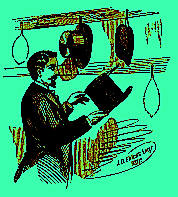
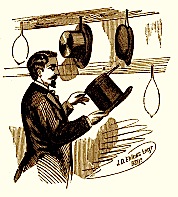
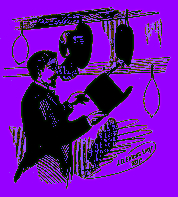
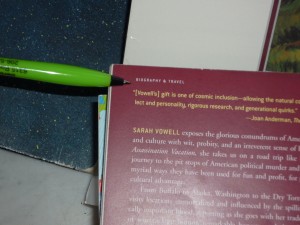
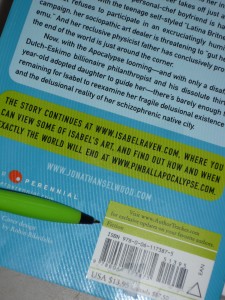








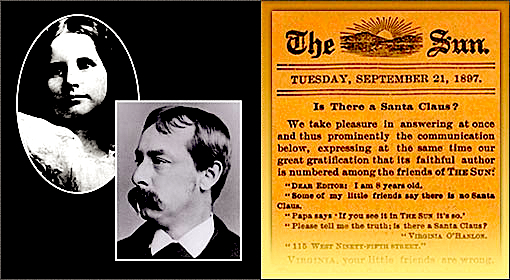









 (1) As with the keynote and the elevator speech, most pitchers make the mistake of trying to turn the pitch proper into a summary of the book’s plot.
(1) As with the keynote and the elevator speech, most pitchers make the mistake of trying to turn the pitch proper into a summary of the book’s plot. (2) Most pitchers don’t stop talking when their pitches are done.
(2) Most pitchers don’t stop talking when their pitches are done. (3) The vast majority of conference pitchers neither prepare adequately nor practice enough.
(3) The vast majority of conference pitchers neither prepare adequately nor practice enough. (4) Most pitchers harbor an absurd prejudice in favor of memorizing their pitches, and thus do not bring a written copy with them into the pitch meeting.
(4) Most pitchers harbor an absurd prejudice in favor of memorizing their pitches, and thus do not bring a written copy with them into the pitch meeting. (5) Most pitchers don’t realize until they are actually in the meeting that part of what they are demonstrating in the 2-minute pitch is their acumen as a storyteller. If, indeed, they realize it at all.
(5) Most pitchers don’t realize until they are actually in the meeting that part of what they are demonstrating in the 2-minute pitch is their acumen as a storyteller. If, indeed, they realize it at all. (6) Few pitches capture the voice of the manuscript they ostensibly represent.
(6) Few pitches capture the voice of the manuscript they ostensibly represent.  (7) Very few pitches include intriguing, one-of-a-kind details.
(7) Very few pitches include intriguing, one-of-a-kind details.  (8) Most pitchers assume that a pitch-hearer will hear — and digest — every word they say, yet the combination of pitch fatigue and hectic pitch environments virtually guarantee that will not be the case.
(8) Most pitchers assume that a pitch-hearer will hear — and digest — every word they say, yet the combination of pitch fatigue and hectic pitch environments virtually guarantee that will not be the case. (9) Few pitchers are comfortable enough with their pitches not feel thrown off course by follow-up questions.
(9) Few pitchers are comfortable enough with their pitches not feel thrown off course by follow-up questions. (10) Far too many pitchers labor under the false impression that if an agent or editor likes a pitch, s/he will snap up the book on the spot. In reality, they’re going to want to read the manuscript first.
(10) Far too many pitchers labor under the false impression that if an agent or editor likes a pitch, s/he will snap up the book on the spot. In reality, they’re going to want to read the manuscript first. If the agent is interested by your pitch, she will hand you her business card and ask you to send some portion of the manuscript — usually, the first chapter, the first 50 pages, or for nonfiction, the book proposal. If she’s very, very enthused, she may ask you to mail the whole thing.
If the agent is interested by your pitch, she will hand you her business card and ask you to send some portion of the manuscript — usually, the first chapter, the first 50 pages, or for nonfiction, the book proposal. If she’s very, very enthused, she may ask you to mail the whole thing.






 Richard Hooker’s M*A*S*H — rejected by 21 publishing houses. {“How many Army doctors could there possibly be?” they must have scoffed. “And who else would care?”)
Richard Hooker’s M*A*S*H — rejected by 21 publishing houses. {“How many Army doctors could there possibly be?” they must have scoffed. “And who else would care?”)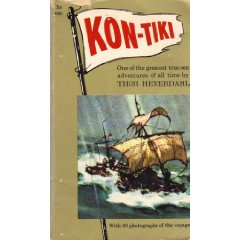 Thor Heyerdahl’s KON-TIKI — rejected by 20 publishing houses. (Yes, THAT Kon-Tiki. “This might appeal to people who sail for pleasure, but can we afford a novel for the yacht-owning niche?”)
Thor Heyerdahl’s KON-TIKI — rejected by 20 publishing houses. (Yes, THAT Kon-Tiki. “This might appeal to people who sail for pleasure, but can we afford a novel for the yacht-owning niche?”)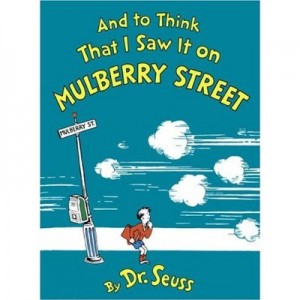 Dr. Seuss’ first book, AND TO THINK THAT I SAW IT ON MULBERRY STREET — rejected by 23 publishing houses. (“Do we really want to confuse children?”)
Dr. Seuss’ first book, AND TO THINK THAT I SAW IT ON MULBERRY STREET — rejected by 23 publishing houses. (“Do we really want to confuse children?”) Richard Bach’s JONATHAN LIVINGSTON SEAGULL — rejected by 18 publishing houses. (“The only person I have ever known who cared about seagulls was my mad great-aunt Kate, who spent her last years wandering down to the beach to offer them caviar on crackers. Next!”)
Richard Bach’s JONATHAN LIVINGSTON SEAGULL — rejected by 18 publishing houses. (“The only person I have ever known who cared about seagulls was my mad great-aunt Kate, who spent her last years wandering down to the beach to offer them caviar on crackers. Next!”)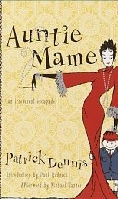 Patrick Dennis’ AUNTIE MAME — rejected by 17 publishing houses. (I have no idea what they were thinking here; perhaps that it was really a memoir?)
Patrick Dennis’ AUNTIE MAME — rejected by 17 publishing houses. (I have no idea what they were thinking here; perhaps that it was really a memoir?)